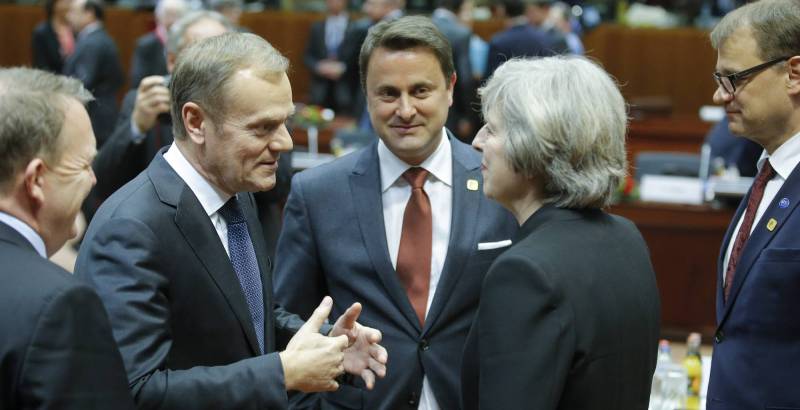Brussels (Online): Leaders of European Union urged an immediate cease-fire around Aleppo and the establishment of a humanitarian corridor but took no fresh action to pressure the Assad regime or its Russian backers over the crisis in Syria.
Thursday’s discussions in Brussels again underlined fissures within the bloc over the conflict. François Fillon, the center-right presidential candidate in France, called for a reversal of European policies and played down Russia’s actions in Syria.
U.K. Prime Minister Theresa May said into Thursday’s leaders meeting, the regime of Syrian President Bashar al-Assad, Russia and Iran were responsible for the Aleppo “tragedy.”
She said the bloc needs to “robustly condemn what is happening in Syria. President Assad and his backers in Russia and Iran bear responsibility for the tragedy.”
U.K. Foreign Secretary Boris Johnson on Thursday summoned the Russian and Iranian ambassadors to express the British government’s concern over the actions of their countries in Aleppo.
French President François Hollande called for the immediate delivery of food and medicine to Aleppo and said there should be a United Nations-run humanitarian corridor to allow people out of the city. France is pushing a UN Security Council resolution to achieve this.
Mr. Hollande said to reporters after Thursday’s meeting. “What we want is to save the population.” He added that Western governments must push Russia to back a political solution in Syria.
He said, “It doesn’t suffice just to speak with Vladimir Putin. We need to exert a pressure with the aim of achieving a political decision.”
After the meeting, EU leaders released a statement condemning “the continued assault on Aleppo by the Syrian regime and its allies, notably Russia and Iran, including the deliberate targeting of civilians and hospitals.”
The bloc warned it would provide financial support for the reconstruction of Syria “only once a credible political transition is firmly under way.”
However, EU governments have backed off a U.K. and French push to target Russian officials with sanctions over the Syrian crisis after a number of countries, including Austria, Italy and the Czech Republic, opposed the step.


